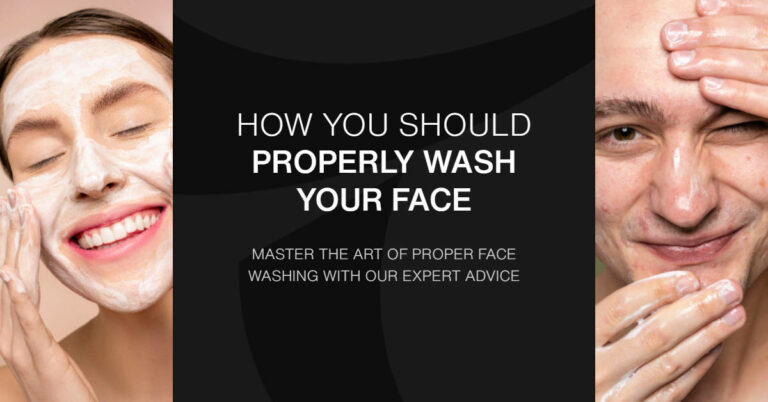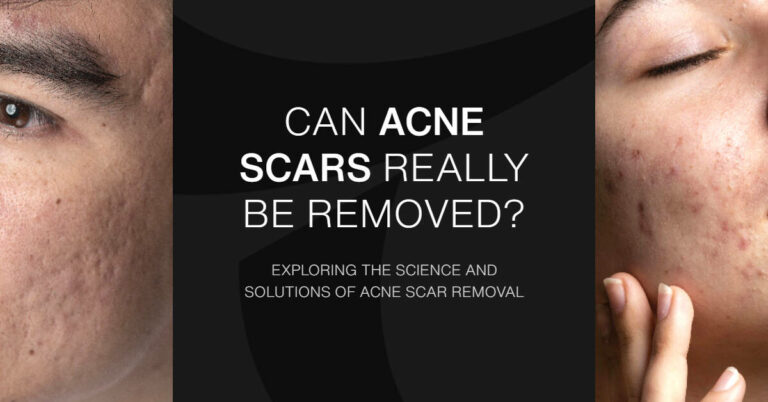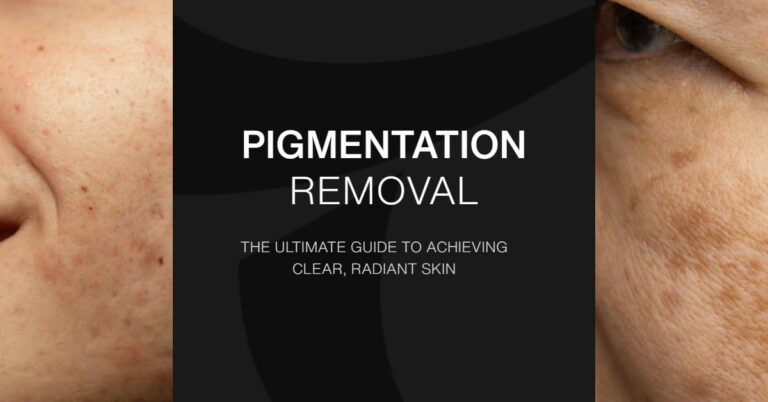

Acne: Causes, Prevention & Treatments
- Coslab Beauty Spa
- October 2, 2023
Table of Contents
Acne Vulgaris, more widely known as acne, is a common condition that occurs when hair follicles, those tiny skin openings, get clogged up due to extra oil from hyperactive sebaceous glands. The oil pairs up with dead skin cells, forming plugs that form whiteheads or blackheads. With the growth of bacteria that interacts with the clogged pores, leading to different types of acne: papules, pustules, nodules, or cysts.
In a nutshell, acne is a result of clogged follicles, overactive oil glands, and bacterial invasion, this can affect anyone with any skin type. But there’s more to it than just the above three factors that cause acne.
1. Puberty and Hormones
For people with acne, one of the most common causes is the hormonal fluctuations that occur during puberty. During puberty, their bodies undergo significant changes, including an increase in androgen hormones which is commonly termed as “teenage acne”. These hormones stimulate the sebaceous glands to produce excess sebum, an oily substance that can clog pores, damaging the skin’s natural protective barrier and lead to acne breakouts.
If hormonal acne still continues past their early twenties, this is known as adult acne which is very common.
2. Hereditary Factors
Genetics also play a role in acne development. If your parents or close relatives have a family history of acne, you might be more prone to experiencing severe acne yourself. If both of your parents suffered from acne, you are statistically more likely to have acne-prone skin.
3. Acne in Women
For many women with acne, acne flare-ups can be closely linked to the fluctuations in hormone levels.
Menstrual Cycle
Hormonal fluctuations that occur during the menstrual cycle can trigger increased oil production and inflammation, leading to breakouts. This usually happens a week before menstruation begins and may continue throughout the period.
Polycystic Ovarian Syndrome
Polycystic Ovarian Syndrome (PCOS) is a medical condition where women’s ovaries produce an abnormal amount of male sex hormones (excess androgens). This in turn can cause symptoms in women such as acne, weight gain, and the development of small cysts in the ovaries.
4. Unhealthy Diet
The phrase “you are what you eat” holds true when it comes to acne. Consuming a diet high in processed foods, greasy foods, sugary treats, and unhealthy fats can trigger oil production contribute to inflammation within the body, making inflammatory acne worse.
On the other hand, a diet rich in fruits, vegetables, whole grains, and lean proteins provides essential nutrients that promote skin health. Incorporating antioxidant-rich foods and staying hydrated can help reduce the risk of acne breakouts.
5. Stress
In today’s fast-paced world, stress has become an unavoidable part of life. However, chronic stress can wreak havoc on your skin. When you’re stressed, your body releases cortisol, a stress hormone, which can lead to excess oil production and inflammation which can lead to the development of acne.
Finding healthy outlets for high stress levels, such as exercise, meditation, or engaging in hobbies, can have a positive impact on both your mental well-being and your skin.
6. Other Factors
Some indirect causes you may not have thought could be triggering your acne include makeup, skincare products, and hair care products. Some cosmetic products contain comedogenic ingredients that clog pores which can trigger acne formation.
Internal health issues may also be the cause of your acne, traditional methods of face mapping are used to link the locations of acne on the face with different organs and bodily systems. This can help you find the link between acne and their underlying causes.
An example would be how forehead acne is most likely due to stress, poor diet, or hair products. Acne around the jaw and chin is said to be hormonal acne due to an imbalance of hormones.
Preventing Future Breakouts: Practical Tips
1. Gentle & Safe Products: Develop a gentle skincare routine with non-comedogenic skin care products. In order to avoid poor hygiene, stick to a simple and easy routine: cleansing with a gentle facial cleanser, moisturizing, and spot treatments on any blemishes.
2. Skin Care Habits: Avoid picking, popping, or squeezing acne lesions, as this can worsen inflammation and lead to acne scars. Reduce the risk of spreading acne-causing bacteria to the rest of your skin.
3. Healthy Diet: Opt for a balanced diet rich in vitamins, minerals, and antioxidants. Limit your intake of sugary, greasy, and processed foods.
Treatments for Acne
There is a wide range of acne treatments available to address the issue of acne, don’t be afraid to try out different types of treatment of acne to find one that works for you.
1. Topical Medications
Common ingredients found in over the counter acne medicines used to spot treat mild acne that you should look out for are:
- Benzoyl Peroxide
- Salicylic Acid
2. Oral Medication
For moderate acne to severe acne, you may be prescribed oral medicine to reduce the growth of acne-causing bacteria.
Oral antibiotics should only be used for the shortest time possible and paired with other to prevent antibiotic resistance. They should be combined with other drugs, such as benzoyl peroxide, to reduce the risk of developing antibiotic resistance.
Acne is more likely to become resistant to topical antibiotics than oral antibiotics over time. Consuming some of these oral medications may also trigger some side effects such as heightened sensitivity towards exposure to sunlight.
Another common form of oral medication to handle mild to severe acne is birth control pills.
3. Facial Treatment for Acne
Getting a professional facial treatment that includes extractions to help clear out clogged pores and tackle most forms of acne lesions without the risk of acne scars. Treatments for acne help to remove the layer of damaged skin, revealing new healthy layer of skin underneath.
Extractions act as a preventative measure preventing future breakouts.
Acne might be a common skin condition, but its causes can be complex and interconnected. From the hormonal rollercoaster of puberty to genetic predispositions, various factors can contribute to those frustrating breakouts. By understanding the causes of acne and adopting a proactive approach to skincare, you can help prevent further breakouts and promote healthier, clearer skin.
- Tags: Acne, acne facial, pcos, period acne, Sebum, stress
Share Article
Related Articles


Skincare Tips every Women Should Know!

Period Acne. Why do we get them?

Skincare Routine (Oily and Acne Prone Skin Edition)
Like This Article?
Subscribe to our newsletter to get the latest insider updates, news and insights. No spams. We promise.
You Might Also Like

Can Acne Scars Really Be Removed?

How You Should Properly Wash Your Face: Steps You Should Never Skip

